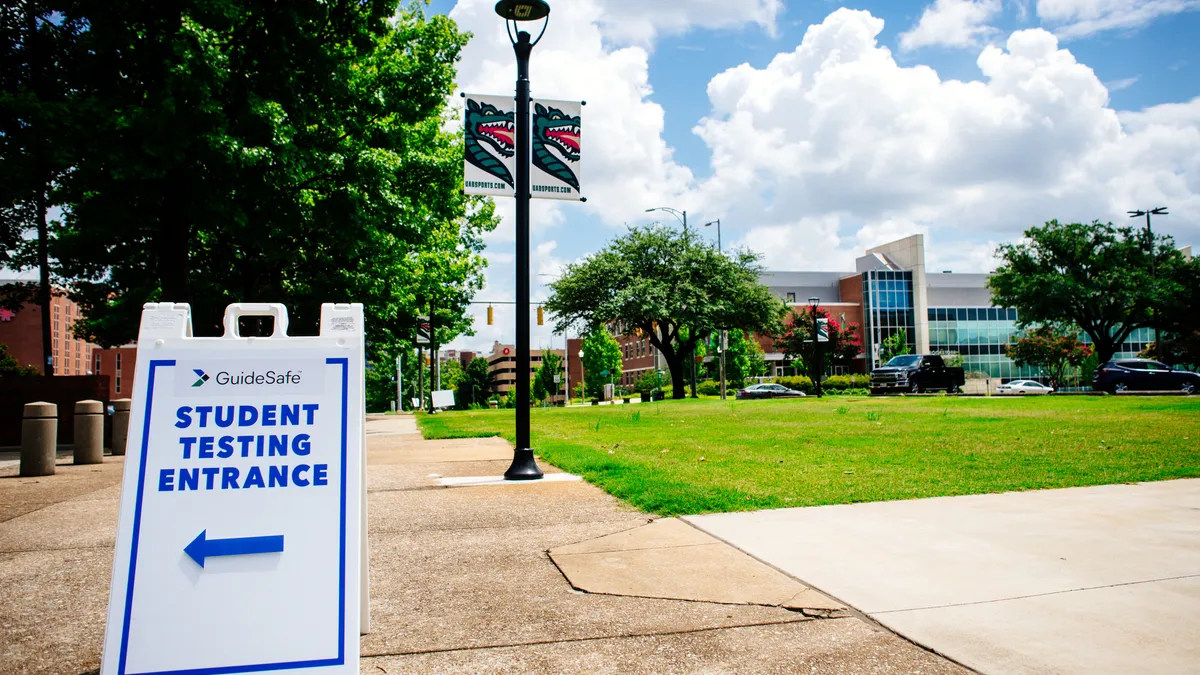Dive Brief:
-
Though many colleges reported in a new survey that they were currently conducting coronavirus testing, less than 40% screened students upon their arrival to campus this fall.
-
The American College Health Association polled nearly 300 institutions in October, mostly four-year schools, and found vast differences among their testing strategies.
-
Some institutions are scaling up testing as they plan for a spring term still beset by the pandemic.
Dive Insight:
The Centers for Disease Control and Prevention's recommendations for coronavirus testing at colleges have been somewhat inconsistent. It initially only advised them to screen for the virus if individuals were symptomatic or if they may have been exposed to the virus, but in September it revised its stance, suggesting that testing students upon reentry, and regularly after their return, could be useful to prevent transmission.
This advice tracked with research that suggested frequent testing was key to prevention. One study found students would need to be tested every two days, as well as abide by other mitigation efforts, to halt the virus' spread.
Most institutions in the ACHA survey reported they were testing symptomatic students (93%), as well as students who had been exposed to the virus (84%). About 60% of institutions were testing faculty and staff, and 70% were screening at least some asymptomatic students.
One-fifth of the colleges surveyed were testing students who lived on campuses more than once a week as part of a surveillance regime. Just under double that share were testing their residential populations weekly.
The turnaround time on these tests varied, but the colleges most frequently reported it took one to two days to get results back.
As the U.S. inches closer to approving a coronavirus vaccine, some colleges are mapping out how they could bring students back to campus in the spring.
About 60% of institutions are planning to host some form of in-person classes next year, according to the College Crisis Initiative, which tracks institutional responses to the health crisis. But the organization's founder and director, Chris Marsicano, told Politico that campuses shouldn't reopen without the ability to conduct robust testing.
Some colleges' approaches to testing have earned widespread praise. Duke University employed pool testing with much success. In that method, tests are analysed in batches, and only if the set appears positive are the tests reviewed individually. This option can allow for faster test processing but can also increase the likelihood of false negatives.
And Northeastern University tested many of its undergraduates every three days, enabling it to keep case counts down.










